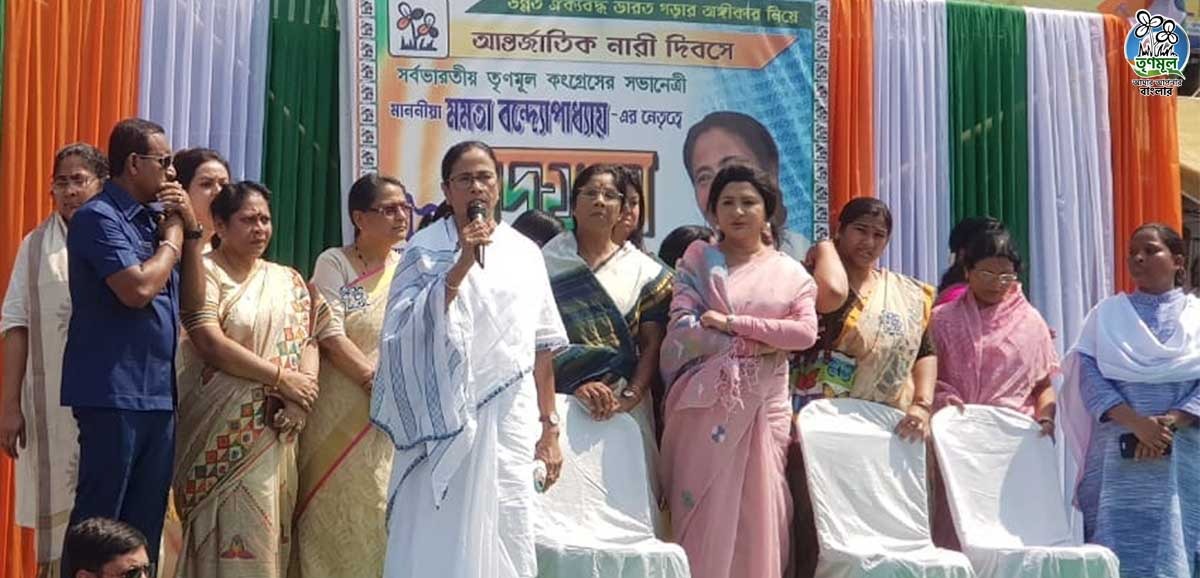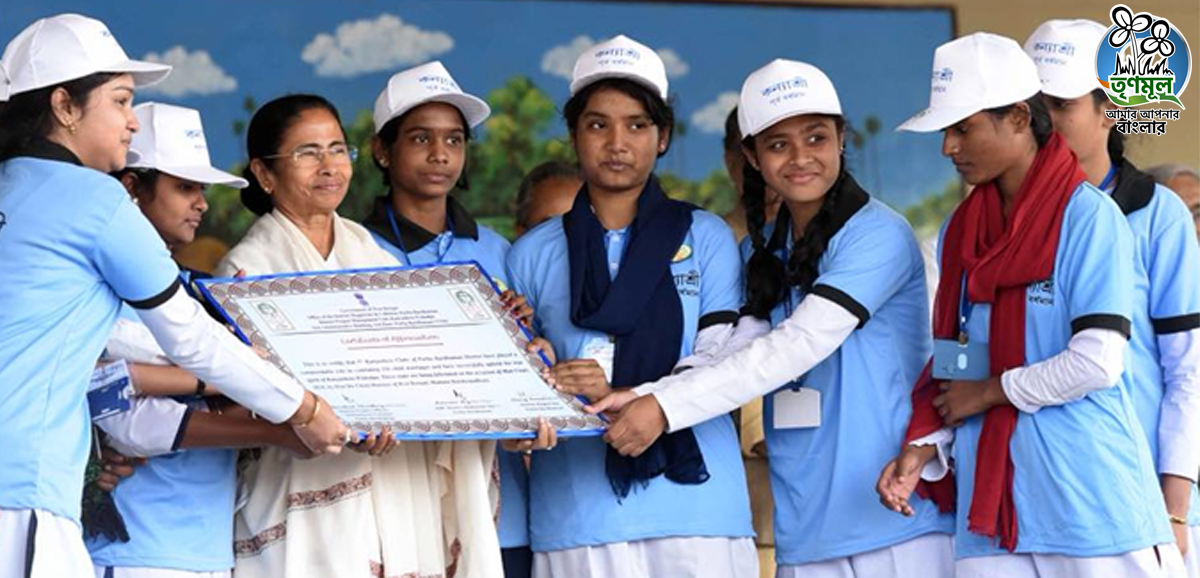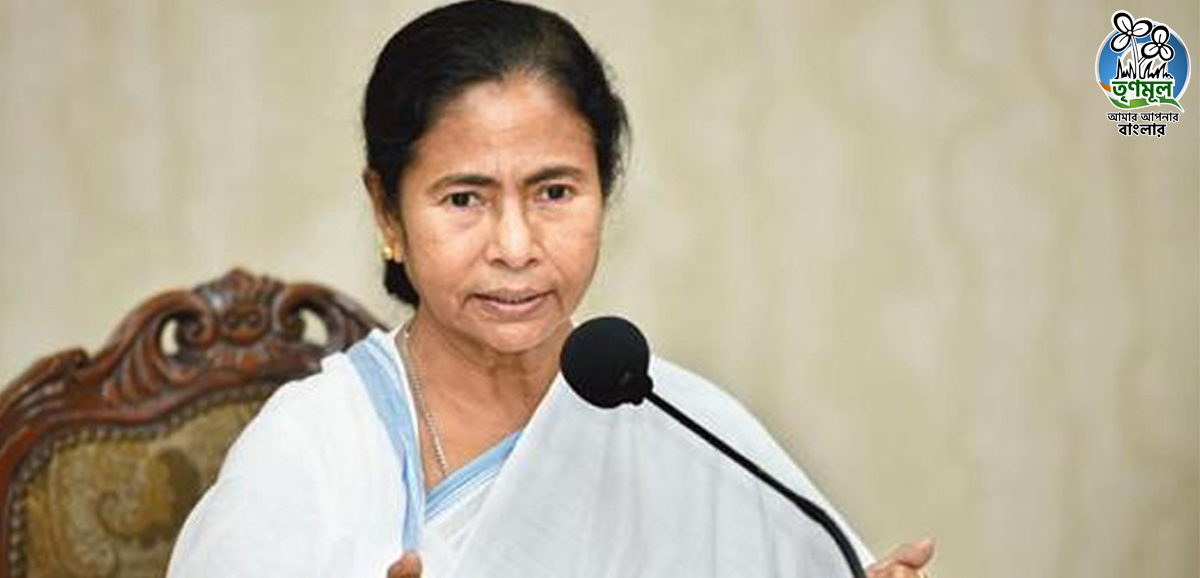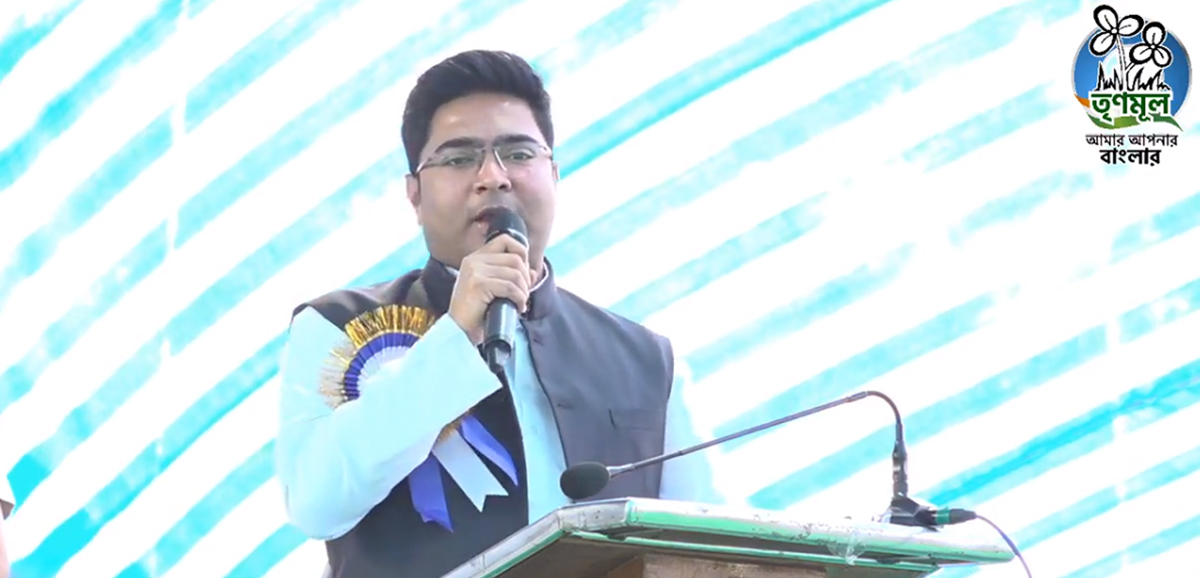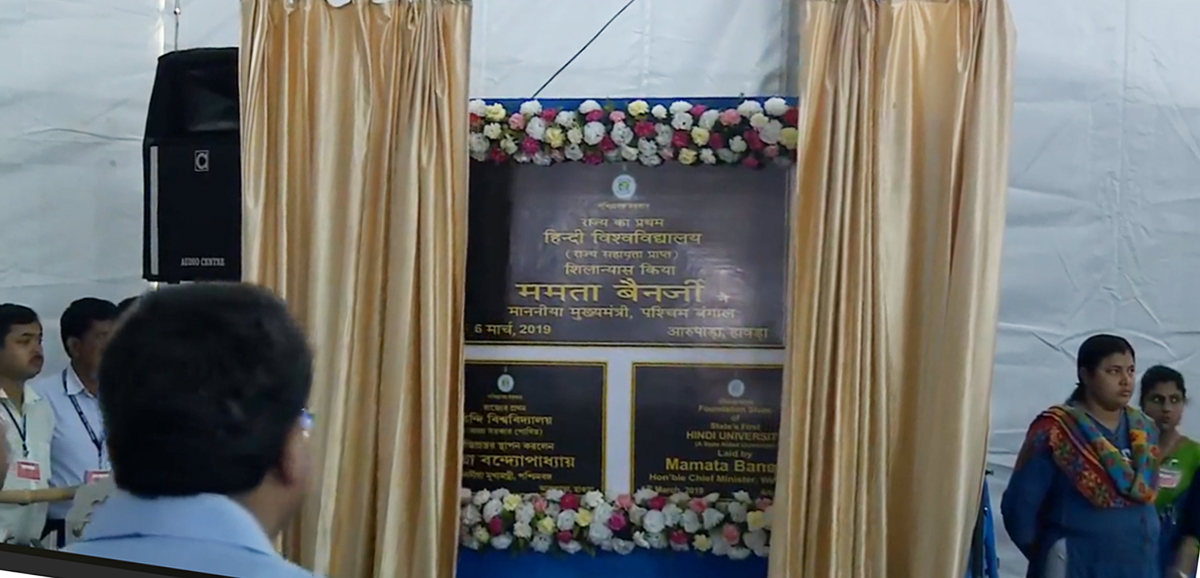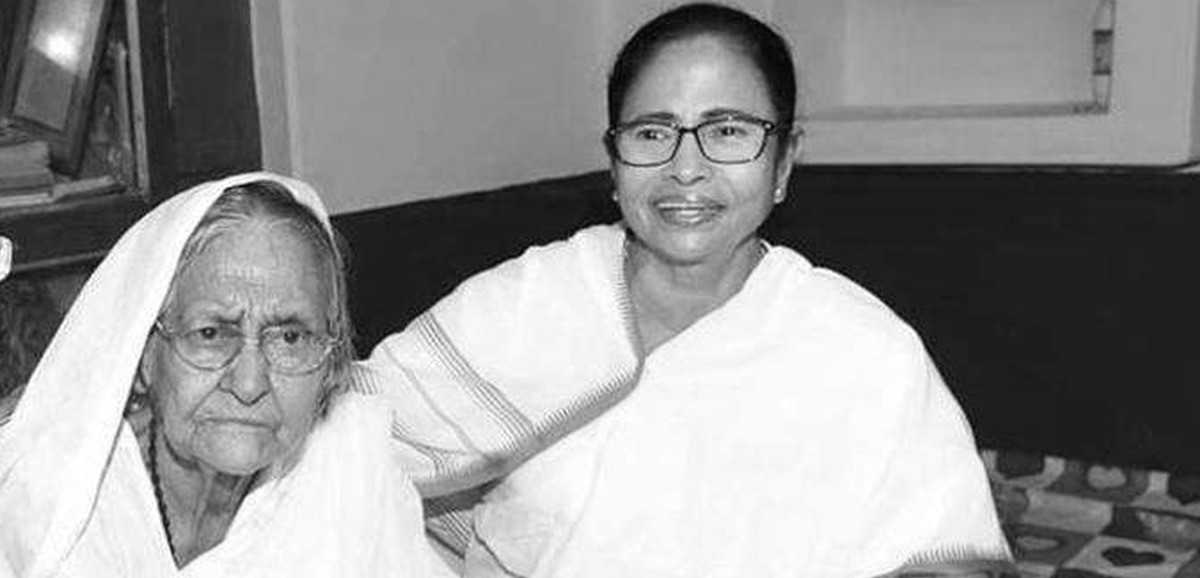Since 2011, the Trinamool Congress Government, led by Chief Minister Mamata Banerjee, has stressed on the need to develop facilities and introduce schemes and programmes especially for women – be it in the areas of livelihood, health, social upliftment, law enforcement or accommodation. Bangla is number one in the country in terms of empowerment of women.
Today, on the occasion of International women’s Day, we have listed below the primary measures taken in these fields.
Empowerment of rural women through self-help groups (SHG):
- About 70 lakh poor women have been mobilised into 5.5 lakh credit-linked SHGs
- Almost 90,000 SHGs formed, 90 per cent of whose members are women.
- Mission Million Dreams: Mission Million Dreams, a sub-project under the MGNREGS, or 100 Days’ Work Scheme, was initiated to provide livelihood-enhancing assets to 10 lakh women, mostly belonging to self-help groups (SHG), over a period of two years.
- Anandadhara: Under the Anandadhara Scheme, 6,74,472 all-women self-help groups have been formed in rural areas.
- Income Enhancement Initiative for SHGs through Poultry-farming and Goat-rearing: Under this scheme, approximately Rs 31.5 crore has already been provided to 25,000 SHGs for backyard poultry and goat-rearing.
- Pathasathi: Women’s SHGs have been given the responsibility of managing SHGs.
Health: The government has ensured optimum help for all aspects of women’s health, the important ones among which are given below.
- Waiting Huts: Waiting Huts are residential medical facilities, including adequate diets, available free of cost to pregnant women living in far-flung rural areas, to enable institutional deliveries.
- Matri Jan: Under this health scheme, ambulances purchased with government funds have been empanelled, across all the districts, to be made available for transporting pregnant women and sick neonates free of cost to the nearest government hospitals and health centres.
- Bangla Matri Prakalpa: Under this scheme, which came into force on January 1, 2018, for their first child, mothers would receive from the government, in three instalments, a total grant of Rs 5,000, with Rs 1,000 being paid immediately on birth of the child. The money would be transferred directly to the bank account of the mother. This grant is being given to ensure the growth of a healthy child.
- Mother and Child Hubs: Thirteen Mother and Child Hubs (MCH) are being set up for ensuring qualitative and quantitative improvement in maternal and child services in hospitals with high case load.
- Human Milk Bank: In August 2013, the government had launched India’s first Human Milk Bank, named ‘Madhur Sheha’ by the chief minister, at SSKM Hospital. Babies who are prematurely born or are of very low birth weight or whose mothers are unable to feed them directly, can be recipients of the banked milk.
- Maternity Leave: Paid maternity leave for State Government employees has been extended. ‘Maternity and Child Care Leave,’ as it is called, can now be taken for a total period of two years (730 days), in stages. The benefit can be availed by women working in State Government offices, schools, colleges, universities, panchayats and municipalities.
- Swasthya Sathi: Almost 7.5 crore people from 1.5 crore families are enrolled under this scheme. As a result, 75 per cent of the State’s population is now covered under health policies. Along with free diagnosis and treatment in all government hospitals, health coverage of Rs 5 lakh is also being provided in private hospitals, free of cost. Another fact is that members of SHGs, and ASHA and anganwadi works, who are all women, have been have been enrolled under Swasthya Sathi.
- Swasthya Sathi smart cards: As part of the Swasthya Sathi group insurance scheme, last month, Mamata Banerjee announced the introduction of Swasthya Sathi smart cards for female members of the beneficiary families. The benefits of the scheme can also availed by a woman’s parents even after she marries and begins to stay with her husband/husband’s family.
- Sabujshree: Under this incentive-based scheme, 24 lakh mothers of newly-born children have been distributed seedlings of commercially-viable trees upto December 31, 2018, to be encashed by selling the trees when the children, and naturally the trees too, reach the age of 18 to pay for the cost of the education.
- Health indices among the best in India: As a result of the persistent efforts of the State Government, the infant mortality rate (IMR) has dropped from 32 to 25 per 1,000, maternal mortality rate (MMR) has dropped from 113 to 101 per lakh, and the rate of institutional delivery has increased from 65 per cent in 2010 to 97.5 per cent in 2018.
Health workers: ASHA (Accredited Social Health Activists) and ICDS (Integrated Child Development Scheme) workers, though appointed under the National Rural Health Mission (NRHM), are paid by the State Government. To raise their standards of living the government last year raised their salaries.
- Nurses: Since 2011, the government has set up 27 nursing training schools, for conducting General Nursing and Midwifery (GNM) courses. The best-performing nurses (and doctors) at State Government facilities are awarded the Swasthya Puraskar.
- Hike in salaries: From October 1, 2018, for the 50,000 ASHA workers, monthly salary was raised from Rs 2,000 to Rs 3,000 while for the 2.3 lakh ICDS workers, many of whom are women, monthly salary would went up by Rs 1,000.
- Anganwadis: The government has recently announced the appointment of an additional 3,376 anganwadi workers for the efficient implementation and supervision of childcare services. Over 1.15 lakh anganwadi centres are providing for the nutrition of 76 lakh children under the age of five, and 14 lakh pregnant and nursing mothers, across the State. ASHA workers have been given bicycles.
Social upliftment: Social upliftment of women, especially sex workers, through rehabilitation has been one of big achievements, showing the humane face of the Trinamool Congress Government.
- Swabalamban Scheme: Through the Swabalamban Scheme, training is given on a wide range of livelihood activities, e.g., zari craft, handloom weaving, beautician courses, community health, readymade garment-making, wood carving, etc. As a part of this scheme, an acting project for sex workers was also launched, meant to make them self-sufficient by giving them acting lessons and making them employable in the entertainment industry.
- Muktir Alo: Muktir Alo is a comprehensive scheme for the rehabilitation of sex workers. It provides them with opportunities for leading a life with dignity by providing them alternative career opportunities, and also gives protection to victims of sex trafficking.
- Manobik: Widows are among the segments of people covered for receiving allowances from the State Government under the Manobik Scheme.
Empowerment through employment
- Panchayats: Reservation of 50 per cent seats for women has been instituted in the three-tier panchayat system and the municipalities.
- 100 Days’ Work: There has been record-breaking 48 per cent participation of women in the 100 Days’ Work Scheme.
- Pink Taxi Services: On February 20, Mamata Banerjee flagged off a new taxi service called Pink Taxi Services for Kolkata and its suburbs. These pink cabs are driven exclusively by women (both female and male passengers, though, can board them).
- Hostels for working women: To sort out the accommodation issues of working women, hostels are being constructed by the Housing Department, which are available at affordable rates
Strengthening law enforcement for women: The Bangla Government has adopted a ‘zero tolerance’ approach towards crime against women, for which it has adopted several measures.
- Women police stations: The government is setting up police stations run exclusively by women police officers, having set up 48 ‘women police stations’, as they are called, till now. The present target is 73.
- Combating human trafficking and juvenile crime: Dedicated Anti-Human Trafficking Units and Special Juvenile Police Units have been set up in every district.
- The Winners: ‘The Winners’ is a squad of all-women patrolling teams on scooters, created by the Kolkata Police, to combat and prevent crimes like molestation, eve-teasing etc. in order to make public places safer for women.
- Courts: Fifty-two fast-track courts have been set up for women.


